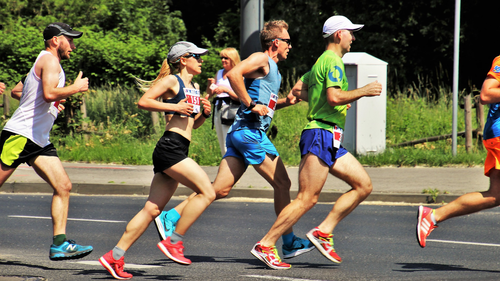Recommendation: 1

Comparing habit-behaviour relationships for organised versus leisure time physical activity
Habit-behaviour relationships in organised and leisure-time physical activity
Recommended by Eleftheria Giannouli based on reviews by 2 anonymous reviewersDespite public health campaigns, achieving recommended physical activity levels remains challenging. Investigating the factors influencing physical activity is essential for effective promotion. Habit strength is known to correlate with physical activity (Hagger, 2019), making habit formation a key intervention target. Newman et al. (2023) expand current knowledge on physical activity and habit strength. They investigate if habit strength and its association with behavior differ between organized and leisure-time physical activities. Given the broad definition of physical activity and individual differences in preferences, studying habit's influence on varied activities is crucial. The cross-sectional survey, spanning the UK, USA, Australia, and Switzerland, involves 120 young adults (mean age = 25) engaged in organized sports. Although self-report measures are used, excluding commuting and occupational activity, the study yields intriguing results: Authors find significant habit strength differences between organized sports and leisure-time activities, indicating potential distinctions in habit formation drivers. Investigating factors establishing habits in organized sports could inform broader interventions. Remarkably, the impact of habits on behavior is consistent across both activity types, suggesting a universal role of habits. Further analysis reveals stronger habit strength in team sports versus individual ones, with no behavior association difference. Diverse habit strength in organized versus leisure-time activities underscores the need for focused research. Understanding unique aspects of team sports that promote habituation can reshape interventions, aligning leisure activities with organized sports' characteristics.
References
Hagger, M. S. (2019). Habit and physical activity: Theoretical advances, practical implications, and agenda for future research. Psychology of Sport and Exercise, 42, 118–129. https://doi.org/10.1016/j.psychsport.2018.12.007
Newman, K., Forestier, C., Cheval, B., Zenko, Z., De Chanaleilles, M., Gardner, B., & Rebar, A. L. (2023). Comparing habit-behaviour relationships for organised versus leisure time physical activity. OSF Preprints, 1–11, version 4, peer-reviewed and recommended by Peer Community in Health & Movement Sciences. https://doi.org/10.31219/osf.io/x5e9d

